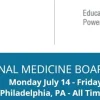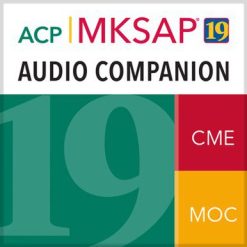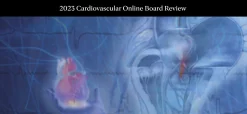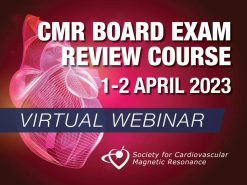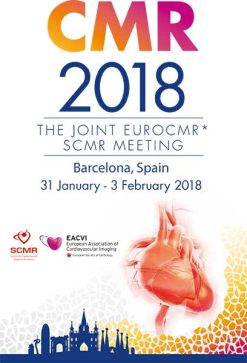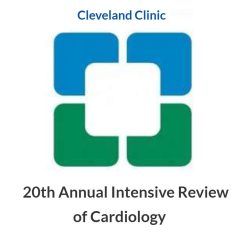HFSA HF-Cert Bootcamp 2023 (Videos with subtitles + Slides)
HFSA HF-Cert Bootcamp 2023
The HFSA HF-Cert Bootcamp OnDemand is a comprehensive virtual program designed to prepare healthcare professionals for the HFSA HF-Cert examination. Consisting of three 90-minute webinars this program will cover the exam’s content and outlines the pillars of heart failure with topics on prevention, healthcare systems, assessment, and management.
The HF-Cert Bootcamp OnDemand is a must-have study tool to prepare for the HF-Cert examination!
Course Outline
The HF-Cert Bootcamp OnDemand investigates the exam’s four content topics of prevention, healthcare systems, assessment, and management.
HF-Cert Exam Content Outline
| HF-Cert Examination Content Domain | Weight |
|---|---|
| I. Prevention | 19 items |
| II. Assessment | 42 items |
| III. Management | 54 items |
| IV. Systems of Healthcare | 10 items |
| Total | 125 items |
| I. Prevention (19 items) |
| A. Understand risk factors and comorbidities and their contribution to heart failure (HF) (e.g. age, Chagas disease, hypertension, renal dysfunction, venous thromboembolism). |
| B. Educate patients regarding positive health behaviors that promote optimal clinical outcomes (e.g. compliance with medication, diet adherence, flexible diuretic regimen, self-care skills). |
| C. Educate patients and caregivers regarding risk of HF symptoms. |
| D. Enhance provider and patient communication in discharge planning and care transitions to reduce hospital readmissions among patients with heart failure. |
| E. Train transitioning HF patients and caregivers in self-monitoring and record keeping (e.g. blood pressure, edema, heart rate, weight gain). |
| II. Assessment (41 items) |
| A. Assess to determine appropriate treatment plan. |
| B. Evaluate risk of HF decompensation in patients with cerebrovascular and peripheral vascular disease. |
| C. Evaluate risk of HF decompensation in patients with acute coronary syndrome and valve disease. |
| D. Evaluate risk of HF decompensation in patients with elevated BP. |
| E. Evaluate risk of HF decompensation in patients with CAD. |
| D. Determine needs for HF treatment interventions (e.g., diagnostic tests, medications, palliative, preventive, surgical). |
| F. Determine differential diagnoses by prioritizing/recognizing urgent and emergent conditions. |
| G. Determine differential diagnoses by synthesizing and analyzing subjective/objective information. |
| H. Determine nutritional causes of cardiomyopathy leading to HF (e.g. sodium and fluid balance, thiamine deficiency from chronic alcoholism). |
| I. Determine criteria for hospital discharge of acute HF decompensation patients. |
| J. Determine criteria for hospital discharge of acute HF decompensation patients. |
| K. Evaluate candidacy for cardiac rehabilitation. |
| L. Evaluate candidacy for referral to advanced care center. |
| M. Establish final diagnoses by ordering, performing, or interpreting additional diagnostic tests. |
| N. Establish final diagnoses by performing or interpreting additional physical examinations. |
| O. Identify relevant changes in clinical status. |
| P. Identify contraindicated drugs based on patient specific parameters. |
| Q. Identify lab-based diagnostic tests for diagnosis and identification of disease stage of HF. |
| R. Interpret multivariable risk scores (e.g. ADHERE, Seattle). |
| S. Obtain comprehensive HF patient history that includes symptoms, social history, family history, past medical history, medications, allergies. |
| T. Review and apply the results of cardiac catheterization. |
| U. Review and apply the results of cardiac imaging (CT, MRI, PET). |
| V. Review and apply the results of cardiac stress test. |
| W. Review and apply the results of echocardiography. |
| X. Review and apply the results of Holter monitor. |
| Y. Review and apply the results of laboratory test. |
| Z. Review and apply the results of X-ray. |
| AA. Perform a comprehensive physical examination. |
| BB. Prescribe lab-based diagnostic tests for diagnosis and identification of disease stage. |
| DD. Provide medication reconciliation. |
| CC. Review discharge follow-up for errors or discrepancies in medications. |
| DD. Review prescription history for adverse reactions (recognize and report). |
| EE. Review prescription history for allergic reactions. |
| FF. Review prescription history for avoidance of drug interactions and complications. |
| III. Management (54 items) |
| A. Advise patient and/or caregiver on guideline directed medical therapy and self-care plan. |
| B. Demonstrate knowledge of social determinants and barriers to implementation of appropriate HF management. |
| C. Assess patient eligibility for advanced therapies. |
| D. Assess patient eligibility for hospice care coordination. |
| E. Assess patient eligibility for recognition of futility in care. |
| D. Evaluate risk of HF decompensation in patients with atrial fibrillation. |
| F. Participate in shared decision-making and advanced directives. |
| G. Coordinate patient, caregiver, and/or surrogate to implement discharge plan. |
| H. Coordinate palliative care for HF patients (e.g. counseling, cultural activities, homecare, medication to reduce pain/suffering, patient education, spiritual activities). |
| I. Determine the effectiveness of the plan of treatment and care based on outcomes by assessing patient response(s). |
| J. Determine the effectiveness of the plan of treatment and care based on outcomes by collecting additional subjective and/or objective information as needed. |
| K. Recognize the importance of health-related quality of life (HRQOL) in patients with HF (e.g. cognitive dysfunction, chronic alcoholism, depression, symptom burden, functional status). |
| L. Establish a patient-centered treatment and care plan that includes considering comorbidities. |
| M. Establish a patient-centered treatment and care plan that includes making referrals to other health professionals and community resources. |
| N. Establish a patient-centered treatment and care plan that includes ordering, performing, supervising, or interpreting results of further tests. |
| O. Establish a patient-centered treatment and care plan that includes prescribing, ordering, or administering non-pharmacologic therapies and/or procedures. |
| P. Establish a patient-centered treatment and care plan that includes prescribing, ordering, or administering pharmacological therapies. |
| Q. Establish a patient-centered treatment and care plan that includes providing for appropriate follow-up. |
| R. Establish a patient-centered treatment and care plan that includes providing relevant education and/or counseling. |
| S. Evaluate the mechanisms of action, pharmacologic features, and dosing of existing and new agents for treating and managing HF. |
| T. Identify drug-drug and drug-disease interactions. |
| U. Recognize appropriate use criteria of specialized procedures specific to a given population(s) (e.g. endomyocardial biopsy, CPX). |
| V. Provide education and or counseling for HF patients (e.g. diet/fluid intake, self-management, self-monitoring, weight). |
| W. Utilize in-patient physical and occupational therapy for HF. |
| IV. Systems of Healthcare (10 items) |
| A. Demonstrate knowledge of quality, safety, performance, value measures, and ethics in HF. |
| B. Apply culturally sensitive methods with transitioning HF patients. |
| C. Comply with Core Measures and best practice standards. |
| D. Develop administrative roles, policies, and protocols for HF treatment and diagnosis. |
| E. Participate in the development of formal and informal educational programs for appropriate health care professionals. |


